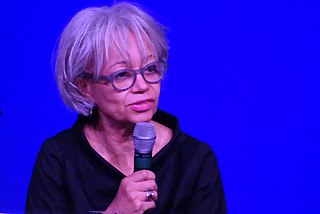A Quote by David Maraniss
It was so crucial to the Civil Rights Movement that on June 23, 1963, Martin Luther King came to town, walked down Woodward Avenue with more than 100,000 people and delivered the first major public iteration of his "I Have A Dream" speech, two months before he did it in Washington.
Related Quotes
Martin Luther King's 1963 'I have a dream' speech was a thrilling milestone in the civil rights movement, so enduring that we tend to attribute its searing power to a kind of magic. But Gary Younge's meditative retrospection on its significance reminds us of all the micro-moments of transformation behind the scenes--the thought and preparation, vision and revision--whose currency fed that magnificent lightning bolt in history.
That was exciting to be able to comment on civil rights. I mean, the civil rights movement that young people don't know about today, but Martin Luther King was considered by the establishment press in the early years of the sit-in movement as a dangerous man, and he was the equivalent at that time as Malcolm X. And he was told to stop his demonstrations; they were against the law and all of that. Now that he's sainted and sanctified we've forgotten.
































